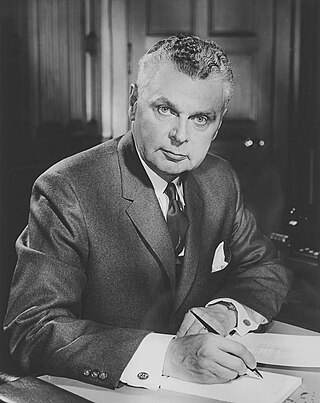
John George Diefenbaker was a Canadian politician who served as the 13th prime minister of Canada, from 1957 to 1963. He was the only Progressive Conservative party leader between 1930 and 1979 to lead the party to an election victory, doing so three times, although only once with a majority of the seats in the House of Commons.

Events from the year 1963 in Canada.

George Harris Hees was a Canadian politician and businessman.
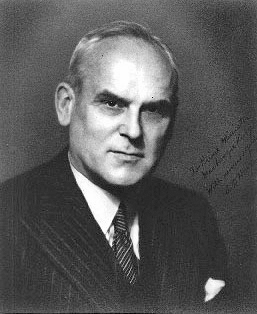
Clarence Decatur Howe was an American-born Canadian engineer, businessman and Liberal Party politician. Howe served as a cabinet minister in the governments of prime ministers William Lyon Mackenzie King and Louis St. Laurent continuously from 1935 to 1957. He is credited with transforming the Canadian economy from agriculture-based to industrial. During the Second World War, his involvement in the war effort was so extensive that he was nicknamed the "Minister of Everything".

Horace Andrew "Bud" Olson was a Canadian businessman and politician from Alberta. He served as the 14th Lieutenant Governor of Alberta from 1996 to 2000. He also served as a Member of Parliament, Senator, Minister of Agriculture, and Minister of Economic and Regional Development. He was also a farmer and rancher, and president and operating officer of Farmer's Stockmen's Supplies in Medicine Hat and Lethbridge, Alberta.
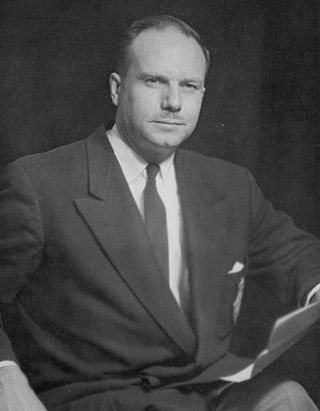
Francis Alvin George Hamilton was a Canadian politician. Hamilton led the Progressive Conservative Party of Saskatchewan from 1949 until he was elected to the House of Commons of Canada in the 1957 general election. That election brought the federal Progressive Conservative Party of Canada to power under John Diefenbaker. He served as Minister of Northern Affairs and National Resources, 1957 to 1960. He promoted a new vision of northern development. He was Minister of Agriculture, 1960 to 1963, where he promoted wheat sales to China.

The 1963 Canadian federal election was held on April 8, 1963 to elect members of the House of Commons of Canada of the 26th Parliament of Canada. It resulted in the defeat of the minority Progressive Conservative (Tory) government of Prime Minister John Diefenbaker, with the Liberals returning to power for the first time in 6 years, where they would remain for twenty of the next twenty-one years. For the Social Credit Party, despite getting their highest ever share of the vote, the party lost 6 seats compared to its high-water mark in 1962.
Marcel Joseph Aimé Lambert was a Canadian politician and Speaker of the House of Commons of Canada from 1962 to 1963.

Major-General George Randolph Pearkes was a Canadian politician and soldier. He was a recipient of the Victoria Cross, the highest award for gallantry in the face of the enemy awarded to British and Imperial forces; and the 20th lieutenant governor of British Columbia.

Gordon Minto Churchill was a Canadian politician. He served in the Legislative Assembly of Manitoba from 1946 to 1949 as an independent, and in the House of Commons of Canada from 1951 to 1968 as a Progressive Conservative. He served in the cabinet of Prime Minister John Diefenbaker.

Douglas Charles Abbott was a Canadian Member of Parliament, federal Cabinet Minister, and justice of the Supreme Court of Canada. Abbott's appointment directly from the Cabinet of Canada as Finance Minister to the Supreme Court was one of the most controversial in the Supreme Court's history.
Arthur Lewis Peter Stursberg, known as Peter Stursberg, was a Canadian writer and broadcaster.
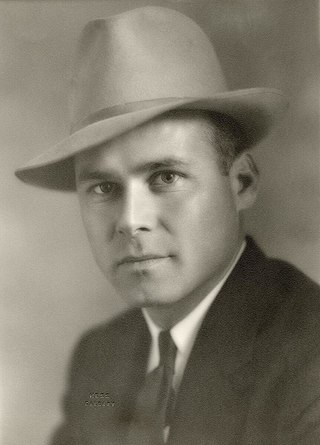
Harry William Hays was a Canadian politician, 27th Mayor of Calgary, Cabinet minister in the government of Lester B. Pearson, and Senator from Alberta.

Léon Balcer, was a Canadian politician.
Asa Milton "Milt" Harradence was a Canadian criminal lawyer, pilot, politician and judge of the Court of Appeal of Alberta.

The 1948 Liberal Party of Canada leadership election was called to replace retiring Liberal leader and sitting Prime Minister William Lyon Mackenzie King. The convention was held exactly 29 years after the 1919 leadership convention that saw King elected Liberal leader. The National Film Board of Canada made a short film about the event for its Eye Witness series.
Captain Arthur Ryan Smith Jr. OC AOE DFC was a Canadian oilfield worker, bomber pilot, executive business man, philanthropist, magazine editor, advertising executive and politician on the municipal, provincial and federal levels of government.
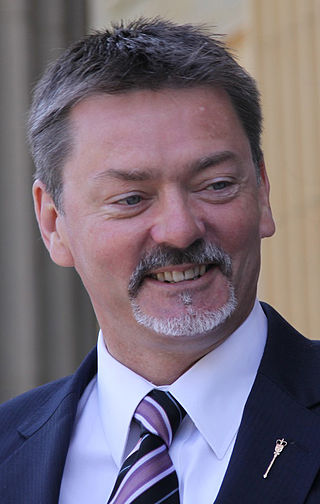
Douglas Alan Horner is a former Canadian politician, who represented the electoral district of Spruce Grove-St. Albert in the Legislative Assembly of Alberta from 2001 until 31 January 2015. He was the President of the Treasury Board and Minister of Finance until Jim Prentice's cabinet was sworn in on 15 September 2014. He was a candidate for the leadership of the Alberta Progressive Conservative Party in its 2011 leadership election, placing third.
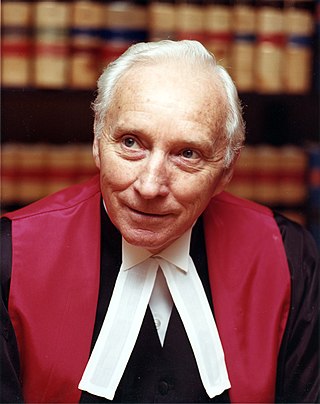
William J. Cameron "Cam" Kirby was an Alberta politician, leader of the Conservative Party, barrister, Queen's Counsel, and a Justice of the Court of Queen's Bench.

Lester Bowles Pearson was a Canadian politician, diplomat, statesman, and scholar who served as the 14th prime minister of Canada from 1963 to 1968. He also served as MP for Algoma East, whose largest municipality was the then-new City of Elliot Lake.

















